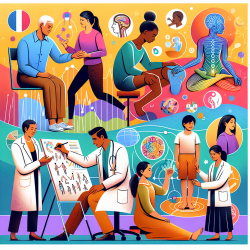Introduction
The transition from childhood to adulthood is a critical period for youth with autism, often associated with the emergence of mental, behavioral, and physical health challenges. A recent longitudinal cohort study, titled "General health status of youth with autism with and without intellectual disabilities transitioning from special education, and its relationship to personal and family circumstances," provides valuable insights into the health status of these individuals. This blog aims to explore the study's findings and discuss how practitioners can leverage this information to improve outcomes for youth with autism.
Key Findings from the Study
The study followed a nationally representative sample of youth receiving special education services over ten years, examining factors associated with their general health status. Key findings include:
- Only 69.6% of youth with autism reported excellent or very good health by the end of the study, with even lower percentages for those with co-occurring intellectual disabilities.
- Older age and lower household income were associated with worse health outcomes.
- Co-occurring intellectual disabilities significantly impacted health status, whereas sex, ethnicity/race, and parental relationship status did not show significant associations.
Implications for Practitioners
These findings underscore the importance of considering socioeconomic factors and co-occurring intellectual disabilities when planning transitional support for youth with autism. Practitioners should focus on:
- Developing individualized transition plans that address both health and socioeconomic challenges.
- Collaborating with families to understand and mitigate the impact of household income on health outcomes.
- Providing targeted support for youth with co-occurring intellectual disabilities to improve their health status.
Encouraging Further Research
The study highlights the need for more longitudinal research to better understand the health trajectories of youth with autism. Practitioners are encouraged to engage in or support research efforts that explore:
- The long-term health outcomes of youth with autism across different socioeconomic backgrounds.
- The effectiveness of specific interventions in improving health status during the transition to adulthood.
- The role of family dynamics and support systems in shaping health outcomes.
Conclusion
Understanding the general health status of youth with autism is crucial for developing effective transition plans and interventions. By considering the study's findings and engaging in further research, practitioners can enhance their ability to support youth with autism during this critical period.
To read the original research paper, please follow this link: General health status of youth with autism with and without intellectual disabilities transitioning from special education, and its relationship to personal and family circumstances: longitudinal cohort study.










